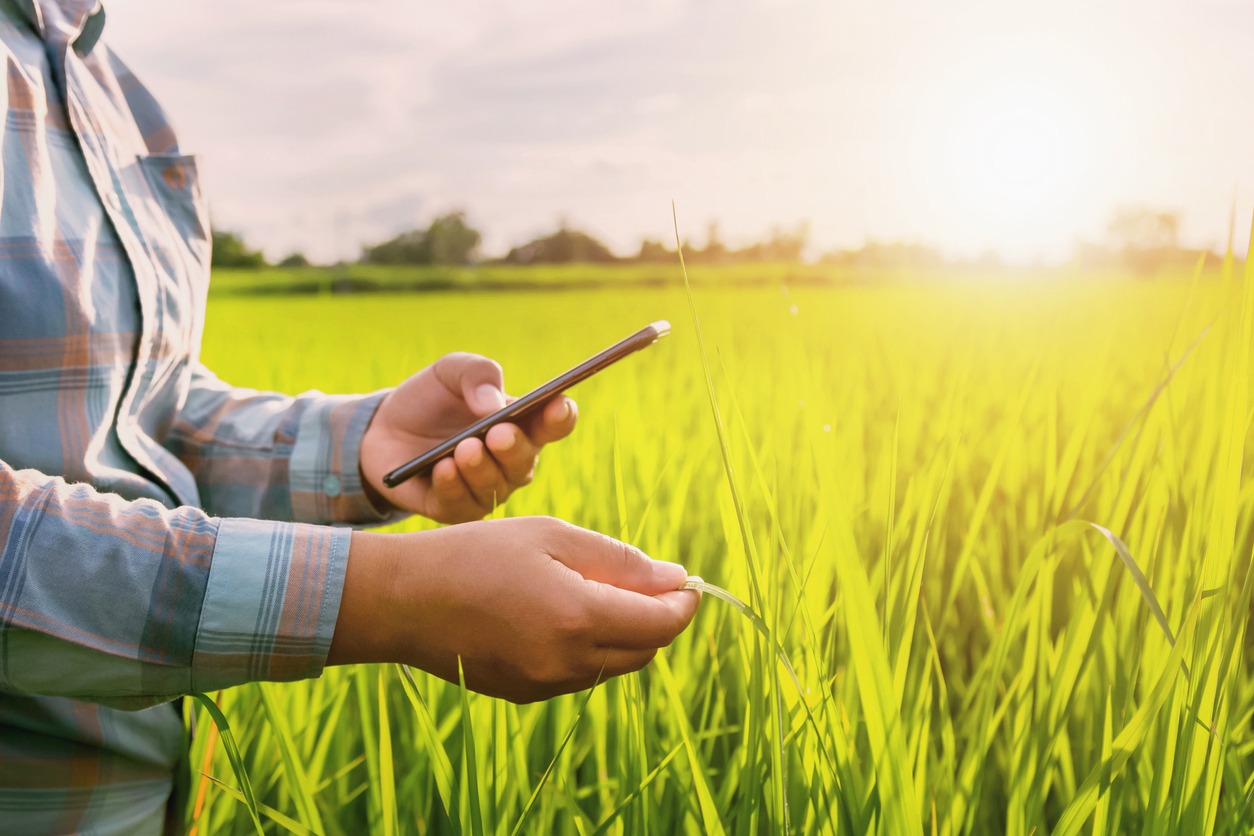Keeping an app’s user interface sticky means making sure users come back regularly. For app-based startups, it’s an important factor in seizing opportunities to monetize and innovate. There’s no “one size fits all” approach, of course; strategies must be customized for a target audience.
So what app features keep farmers in rural areas whipping out their phones daily and buying into startups’ products and services? AFN spoke to agtech app designers building products for Asia’s developing markets at the World Economic Forum-established Grow Asia panel on August 15, hosted as part of a digital learning series.
For Myanmar-based Impact Terra, the key is building digital services that farmers “can do something with and extract value,” says founder and CEO Erwin Sikma. “We need to provide higher value, to give something more valuable than what’s available.”
Impact Terra is an agtech startup with a social mission to boost Myanmar’s smallholder farmers’ productivity, and therefore livelihoods. It raised nearly $3 million in grant funding in March for its mobile and web-based app called Golden Paddy that offers farmers crop and weather information, advice, access to market services and financing.
One trend working in Impact Terra’s favor is Myanmar’s meteoric rise to mobile connectivity. When the country emerged from decades of isolation imposed by military dictatorship in 2011, only North Korea had fewer mobile phones. Today, 80% of Myanmar’s 53-million-strong population owns a smartphone, including 70% of farmers.
But despite Myanmar’s high mobile penetration rate, encouraging users to download and use its app has been challenging for Impact Terra, whose Golden Paddy app reaches three million monthly unique people. “There needs to be a low barrier to usage and in Myanmar. The GooglePlay store is not being used, and farmers are not updating their apps regularly,” says Sikma.
One thing that remains important to Impact Terra’s users: human interaction. The company strives to be responsive to that, says Sikma. “This doesn’t mean we have our people meeting farmers face-to-face all the time,” he explains, but the company recognizes that it is key to building trust with users.
Tapping untapped youth potential
Indonesian e-commerce platform TaniHub, which connects rural farmers to customers, takes a different approach to enhancing its product’s stickiness: it taps into Millennials’ tech habits–specifically, how inseparable they are from their phones and how quickly they pick up new tech.
Like Myanmar, Indonesia has a substantial number of active internet users–nearly 65% by one study’s estimates. That figure is set to rise.
“The low-hanging fruit is the youngsters,” says Sariyo, TaniHub’s head of business development, who goes by one name. “Youngsters are more curious, and they want to have a quick win, as well as easy and fast access.”
TaniHub is among a crop of startups benefitting from a mini agtech funding frenzy in Asia. Its parent company, agribusiness marketplace and fintech platform TaniGroup closed $10 million Series A funding round led by Singapore-based Openspace Ventures in May. Since then, TaniHub has recruited roughly 30,000 to its platform and is eyeing broader expansion across Indonesia with the new injection of capital.
“We sort of forced [young people] to spread the word to friends by giving them incentives,” Sariyo jokes.
But its incentives are highly targeted because to build its user base, TaniHub relies largely on word-of-mouth.
“Mass influence is very difficult art, and we aren’t going there. We aren’t going to gather all farmers in one village and then force them to work with us,” says Sariyo. “We are using the champion approach, where we work with one or two top farmers. And when it works, they spread the word about us by telling their friends.”
If there was a key takeaway from the event, it was that whatever a company’s core offering, adoption depends on user experience and enabling users to recognize value. Without that, retention, or stickiness, will suffer, as will growth.
Grow Asia’s next Digital Learning Series event will be on September 16 at LEVEL3.
Subscribe here to get an invite.
LEVEL3 is a coworking and events space by Unilever Foundry and Padang & Co in the Unilever regional headquarters in Mapletree Business City, Singapore.





